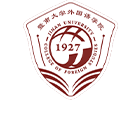讲座题目:论无为的翻译
主讲嘉宾:Douglas Jack Robinson
主持人:廖开洪教授
讲座时间:2015年10月30日12:30-13:45
讲座地点:第二文科楼100会议室
主办单位:外国语学院
【嘉宾介绍】
Professor Douglas Robinson is currently Chair Professor of English and former Dean of Arts at the Hong Kong Baptist University. Before coming to Hong Kong in 2010 as Tong Tin Sun Chair Professor of English and Head of the Department of English at Lingnan University, he worked at the University of Mississippi for over 20 years in various academic and administrative positions. Professor Robinson received his Bachelor’s, Master’s and Licentiate degrees in English from the University of Jyväskylä in Finland, and later obtained his second Master’s degree and his PhD in English at the University of Washington, Seattle. Professor Robinson is a critical theorist whose “somatic” and “performative” theories of communication have broken new ground in literary studies, linguistics and translation studies. He has an impressive publication record which includes more than 20 monographs and 5 textbooks as well as articles in refereed journals and translation work from Finnish, German and Russian; he has been cited over 2700 times. He is the author of The Translator's Turn, Translation and Taboo, Translation and Empire, Becoming a Translator, What Is Translation?, Who Translates?, Performative Linguistics (the relevant predecessor for his talk here), Translation and the Problem of Sway, and Schleiermacher's Icoses, and editor of Western Translation Theory from Herodotus to Nietzsche. His forthcoming books include Semiotranslating Peirce and The Dao of Translation. He is currently at work on a translation of Finland's greatest novel, Aleksis Kivi's Seven Brothers (1870).
【内容摘要】
Chinese people often have the sense that they are the ones doing all the borrowing from the West--that the West is somehow "ahead" of them, and they are struggling to catch up. While there are certainly some areas where that is true, it is equally true that the West has been borrowing from China--especially ancient Daoist and Confucian thought--for four centuries, and that Chinese philosophy has powerfully shaped peripheral but powerfully dissident intellectual traditions in the West from the Renaissance and Enlightenment esoterics through the Romantics to the pragmatists and phenomenologists. This paper argues that that dissident tradition in Western thought has shaped one emergent strain of translation theory, proposed by the Dutch scholar Dinda L. Gorlee and the Finnish scholar Ritva Hartama-Heinonen, both of whom, in arguing that translators should not translate but simply let the text translate itself, seem to be recapitulating Laozi's notion of 無爲.



